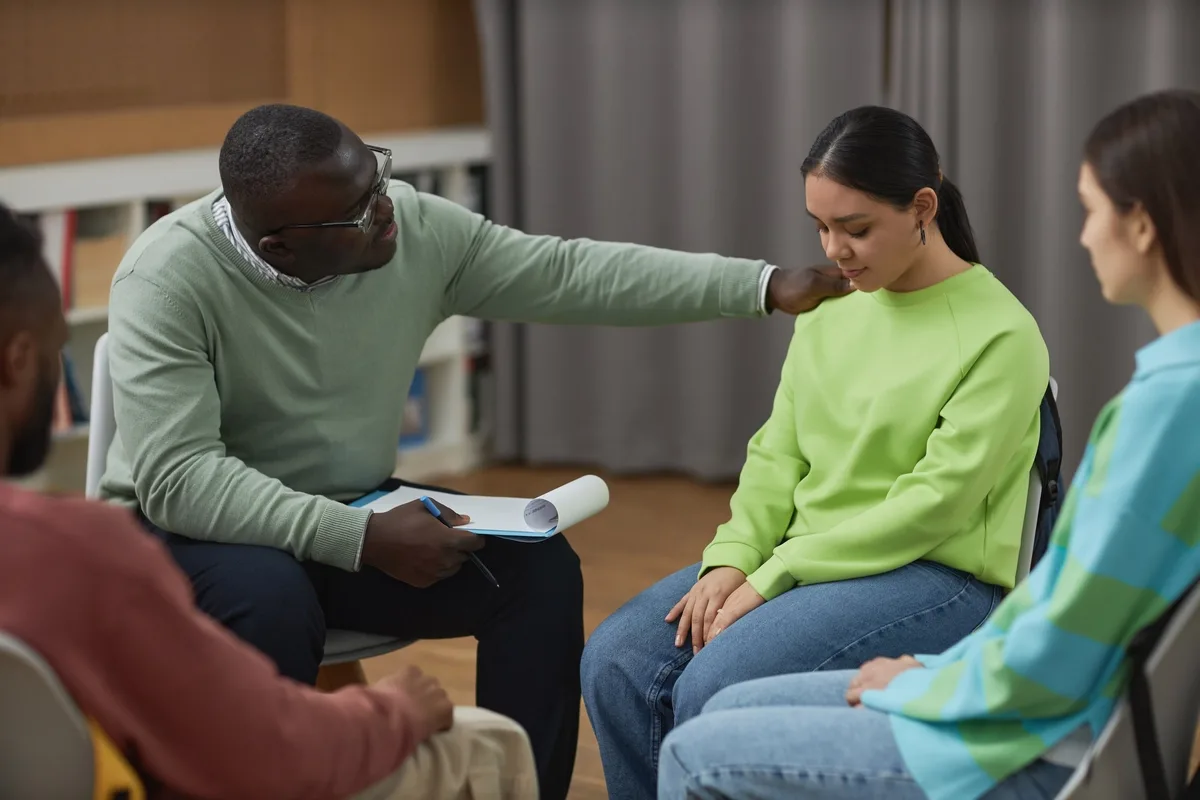24/7 Helpline:
(866) 899-221924/7 Helpline:
(866) 899-2219
Learn more about PTSD Treatment centers in Raphine
PTSD Treatment in Other Cities

Other Insurance Options

WellCare Health Plans

UnitedHealth Group

Health Partners

Holman Group

Evernorth

American Behavioral

Carleon

Magellan

Horizon Healthcare Service

ComPsych

BHS | Behavioral Health Systems

BlueCross

Group Health Incorporated

United Health Care

Humana

Access to Recovery (ATR) Voucher

Sliding scale payment assistance

Lucent

Ceridian

Magellan Health









